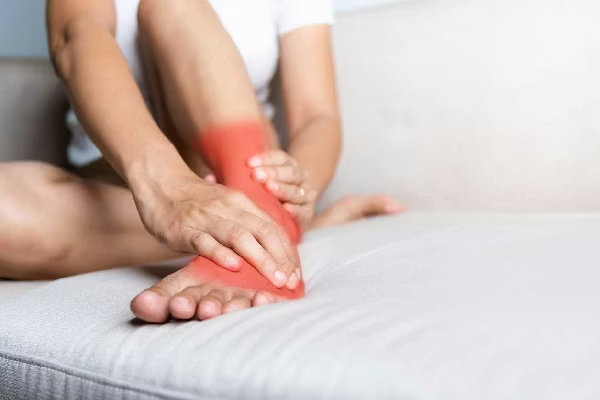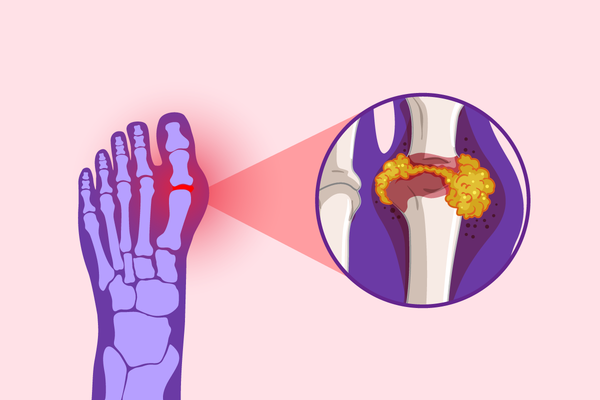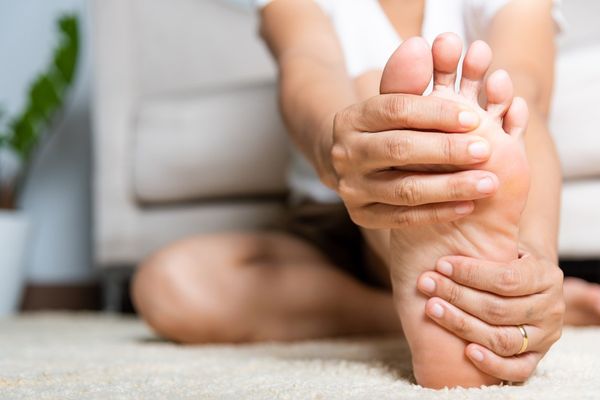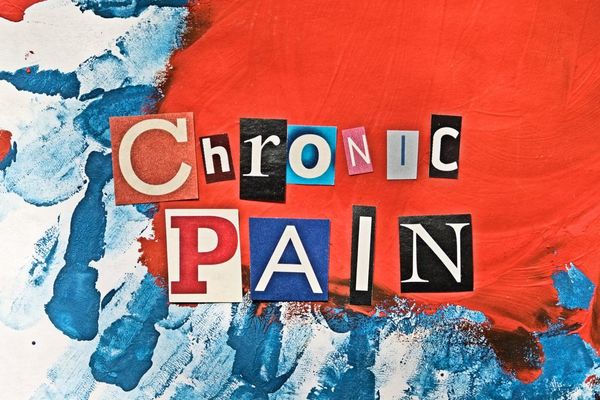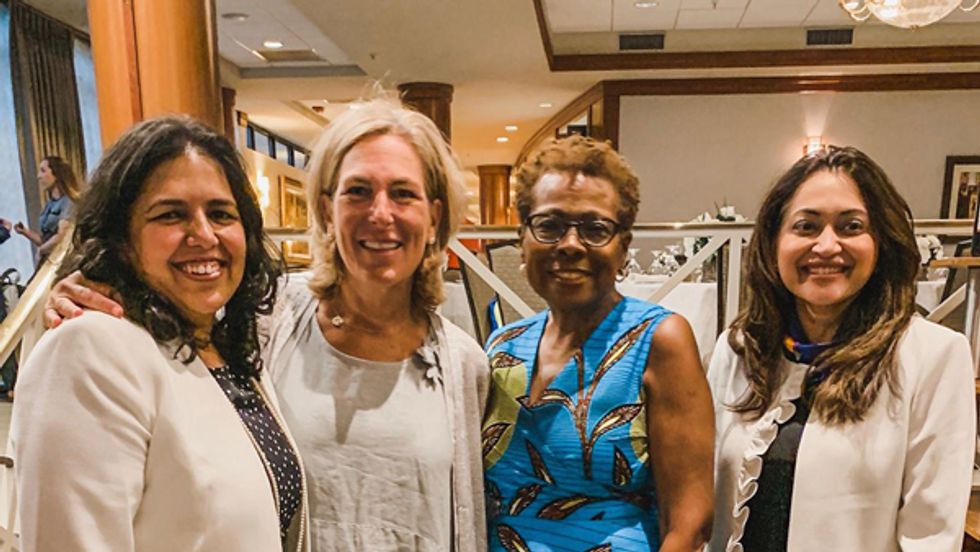
From L to R: Monica Mallampalli, PhD, Beth Battaglino, RN-C, Marsha Henderson (former Associate Commissioner for Women's Health at the FDA), Anita Gupta, DO, PharmD, MPP
I am so pleased to be writing about the success of HealthyWomen's first Science, Innovation and Technology Summit: Chronic Pain in Women: Focus on Treatment, Management and Barriers, July 17-18.
Coordinated by Monica Mallampalli, PhD, HealthyWomen's Advisor for Scientific and Strategic Initiatives, our two-day event aimed to advance and amplify current dialogue on the impact of chronic pain on women's health. We certainly accomplished our goals. The summit convened leading experts in chronic pain science and treatment, policy experts from federal agencies and national pain advocacy organizations. Pain activists with personal knowledge of the devastation caused by chronic pain conditions also provided their unique insights. HealthyWomen is thankful to these trail blazers for illuminating the elusive aspects of chronic pain with the bright spotlight it demands.
I learned so much from our participants and from their commitment to ending the suffering connected with chronic pain. For example, artificial intelligence is now being applied to chronic pain study with tremendous potential. And, successful models for pain management programs exist, such as the one established for women veterans at the VA Connecticut Healthcare Center, can be emulated to benefit women and other populations in need.
My hope is that a reckoning for chronic pain in women is not far off. Improved awareness, louder patient voices and targeted research will elevate chronic pain's status from "invisible" to "visible," leading to faster diagnoses, innovative treatment and management strategies and, ultimately, will end long-term suffering.
This will be a triumph for women's health because women bear a far greater burden of pain. Indeed, the prevalence of most common pain conditions (arthritis, back pain, headache, among others), is higher in women compared to men. In addition:
Seventy percent of chronic pain patients are women.
Women's life expectancy is reduced by one year for every 10 years spent with chronic pain.
Women with chronic pain are more likely to be treated with prescription pain relievers, like opioids, and at higher doses and for longer periods, than are men, putting women at greater risk for developing opioid use disorder.
While some research has addressed sex differences in pain management, perception and pain threshold, this progress has not translated to improved pain treatment for women.
Sleep loss increases pain sensitivity and is a major risk factor for developing chronic pain, especially in women.
Our keynote speaker Anita Gupta, DO, PharmD, MPP, Professor, Rowan University School of Medicine and Senior Vice President, Heron Therapeutics, issued a call to action I am compelled to repeat. No stranger to the pain journey, Dr. Gupta shared her personal experience with treatment for a rare disease that has altered her approach to patient care. Like the World Cup-winning women's soccer stars' call for pay equity in their sport, it is time for "chronic pain equity" in women's health, according to Dr. Gupta. No longer should women suffering from chronic pain caused by migraine, fibromyalgia, arthritis, debilitating complex regional pain syndrome, or pelvic pain conditions, such as endometriosis, be underserved.
There is no doubt that we still confront many challenges in the science and management of chronic pain. However, the following 10 highlights (and, it was hard to pick only 10) from our summit indicate to me that we are on the right path:
More informed research about sex differences in pain likely will lead to pain medication and devices tailored specifically for men and women.
Researchers and study proposal reviewers are now trained to ask questions and evaluate data with respect to biological differences important to understanding sex differences in pain and pain treatment.
Because few drug trials are designed specifically to study women with pain, an opportunity exists to raise awareness about the importance of recruiting women for clinical trials about pain research.
Innovative clinical approaches, such as motivational interviewing and functional pain inventories, can improve the patient-clinician dialogue and improve patient outcomes by setting goals for managing and living with chronic pain.
Re-thinking treatment for opioid use disorder (OUD) to consider women's unique health needs and family responsibilities will improve OUD treatment for women and replace current OUD treatment models based on treatment for men.
More data on women of color and women of color experiencing chronic pain will inform policy, begin to eliminate health care disparities and will lead to changes in health care delivery for all women.
Working to eliminate the stigma associated with chronic pain—including self-stigmatization and inherent race and gender biases--will help to break down major barriers to accessing care and successful treatment.
A key to understanding pain is understanding the robust individual differences in pain experiences. Pain management innovation cannot be "one-size fits all."
Pain research is getting better at measuring pain and increasingly more able to activate, isolate and study specific cell types.
The patient voice must be a partner in drug development, science and patient care.
HealthyWomen is proud to lead this call to action with our first summit on chronic pain in women. We support the "super heroes" so aptly described by Lindsay Weitzel, PhD, a migraine strategist and author, in the battle to raise awareness of chronic pain-related issues. We will continue to connect women, their families, and their health care providers with resources designed to help them overcome barriers to treatment and pain-free lifestyles. And, we will continue to help women tell their stories about their journeys, providing hope for those for whom the journey awaits.
We know that "pushing back against pain," urged by Kate Nicholson, JD, in her closing plenary presentation, "Pain, Resilience and How We Heal," will help society recognize the existence and impact of chronic pain. If you have a minute, check out Kate's TED Talk on the implications of undertreating chronic pain.
A video recording of HeatlhyWomen's Science, Innovation and Technology Summit: Chronic Pain in Women: Focus on Treatment, Management and Barriers, will be available soon here.
Please don't hesitate to contact me with comments or questions about our summit or about HealthyWomen.


